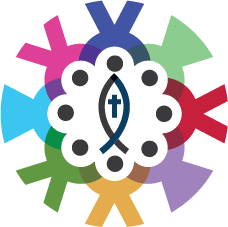Family Support and Social Conformity
Paula Zalcberg is a counsellor and family therapist who works specifically with Deaf and hard of hearing children, adolescents, adults and their families. She is fluent in Auslan and has her own private practice where she sees children, adolescents and adults for individual counselling, couple counselling and/or family therapy. The following material is taken from her presentation at the Let’s Talk About… Mental Health and Deaf People Conference on the 16–17 November, 2015.
Sometimes, when parents receive news that their baby is deaf, this can bring about feelings of loss for the perfect baby they hoped for. This can cause some parents to become distant from their deaf baby. This can make the bonding between mother and baby inconsistent and fragmented. This insecure attachment may then cause a deaf child’s social and emotional development to be insecure, delayed and fragile. This has a huge impact on the deaf child’s understanding of the world, their ability to trust and their ability to have meaningful relationships. It is important to note that approximately ninety per cent of deaf children are born to hearing parents, who often have no prior experience of deafness. Most of these parents will have had no prior contact with a Deaf person.
Parents will see audiologists and cochlear implant teams quite frequently as the child grows. The parents get used to handling hearing aids, ear moulds and processor bits and pieces, and become familiar with hearing aid jargon. What parents do not learn is the language that is related to the child’s emotional understanding of their deafness. Yet as the impact of deafness is influenced by factors such as quality of family environment, and the family’s ability to adapt and develop sound coping strategies, it is crucial that deaf children, their siblings and their parents also understand this aspect of deafness.
Many deaf kids have some degree of language delay and for some, the delay is quite severe, which can further hamper communication with the family. For instance, families often discuss the day’s events at dinnertime. Where a deaf child is the only deaf member of their family, they will have full access to these conversations as they sit quietly eating their dinner but may be unable to take part, or even know what is being discussed around them. This lack of direct communication can cause a high incidence of anxiety and depression in the deaf child and can affect their ability to develop close and meaningful relationships.
Deaf kids tend to learn to use various strategies to protect themselves from feelings of rejection. One of these strategies is what we call the ‘Deaf nod’; when they nod and smile or laugh and hope it’s at the right time in the conversation. They do this to save face and fool the hearing person into thinking they know what is being talked about. At times this works, but in the long term what does it do to a teenager’s self-esteem, always second-guessing and never being a hundred per cent sure they have all the information?
Deaf kids often want to know what is happening or being said in a conversation. They are regularly dismissed with “Don’t worry about it, I’ll tell you later”. Unfortunately, the information is rarely relayed later, and so the person is still left in the dark, waiting and wondering.
It is not uncommon for deaf children to come home from school and say to their parents, “I hate being deaf.” Often parents feel their child’s pain and offer words of encouragement like, “Don’t worry, darling, you’re the best runner in the class, or you’re really good at spelling, or you’re in the top reading group.” This does not actually validate what the child is feeling. Zalcberg encourages parents to say, “Yes, it must really suck when you can’t hear. It must be awful for you. You must get so frustrated and angry at times.” This is actually hearing the child and validating what they are feeling. She also encourages deaf children to talk about their frustration when they are constantly missing parts of conversations, and feeling left out and confused.
Deaf young adults also need the skills to be able to advocate for themselves. Many children struggle with accepting that they can feel being Deaf is okay and should not be a barrier to following their dreams. Zalcberg notes that a lot of her work is with teenagers who are oral, and often they get overlooked in terms of the issues to do with being oral. Some examples are:
1.) “One teenage oral deaf male suffered from high anxiety, especially in social situations. He was going on an excursion with his hearing schoolmates and he needed to tell them to face him when they spoke to him so he could lip-read. He was quite horrified at the thought of telling someone he was deaf.”
2.) “An oral 25-year-old young lady, who had a mild to moderate hearing loss and was also very shy and withdrawn, was suffering from depression when I met her. She had gone through high school as the only hearing-impaired student in the class. When she finished year 12, she took off her hearing aids and didn’t tell anyone she was deaf. This included tertiary teachers. She struggled through several courses, not completing any of them.
“When she came to me, she was suffering from depression, had symptoms of anorexia and was incredibly socially isolated. I had a session with her, her sister and parents. Very soon into the session, it became evident that the family had never really accepted their daughter’s hearing loss. Even some of the extended family did not know at age 25 that she had a hearing loss.
“So the first work I did with this young lady was to talk about what her hearing loss meant to her. Again, the feelings of enormous shame and embarrassment came up. Bit by bit, I encouraged her to start wearing her hearing aids, role-playing job interviews and work situations with her. During the session with this young lady’s family, I asked them what they understood about her hearing loss. They replied that it was the same as wearing glasses. This is often an analogy that people make that is actually quite wrong. The parents were both medical doctors.”
Teenagers strive to be accepted and fit in, and most importantly they do not want to be different. This is particularly hard for deaf kids. It is very hard to fit in when you have a hearing loss, because that makes you different from the start. We can see from these stories that a common theme in oral-based deaf youth is extreme difficulty in understanding and accepting their own deafness. They have intense feelings of shame. They often feel that hearing people, especially within their peer group, are constantly judging them. It is common that they feel they are not good enough and get very angry and upset about this. These can be kids who are academically equal to their peers, but still feel other people judge them as being stupid. They often walk around with great frustration and resentment towards hearing kids, whom they feel do not understand what it feels like to be deaf.
Exploring friendships is such an important part of adolescence. Without appropriate role models, this can be fraught with difficulty. Anger and resentment build up over the years and the adolescent becomes depressed or withdrawn. A common complaint from deaf children is, “I feel really lonely at school, but I feel even lonelier at home when I can’t understand my family talking. I’m always the last one to know what’s going on.”
Most oral teenagers do not identify with the Deaf community. When they meet signing Deaf people, they often feel intimidated and reluctant to communicate. Many deaf kids speak well and one would never know from their speech that they are, in fact, deaf. Often oral deaf kids experience identity confusion: they do not identify with their Deaf peers, yet they feel alienated from their hearing peers. Most oral kids see their deafness primarily as a disability, impairment and physical disorder. But for many Deaf kids who have grown up using Auslan, being Deaf means being part of a unique culture with its own language, traditions and values. Zalcberg encourages all her oral clients to learn Auslan and to find a place where they feel accepted as a Deaf person.
Mentoring is very important for deaf children. We need to encourage this to happen more, particularly for deaf students at the vulnerable stage when they are in Years 8 and 9. They will benefit immensely from seeing and meeting other young people in Year 11 and 12, or at university, who are happy and secure. This can be of value when they are starting to wonder about friendships, relationships and their future.
Reference: Mental Health and Deaf People: Let’s Talk About… Mental Health and Deaf People. Conference 16–17 November, 2015. Deakin University, Burwood, Victoria. Report by Melissa Lowrie and Gary Kerridge, Deaf Victoria (Page 21-22).

